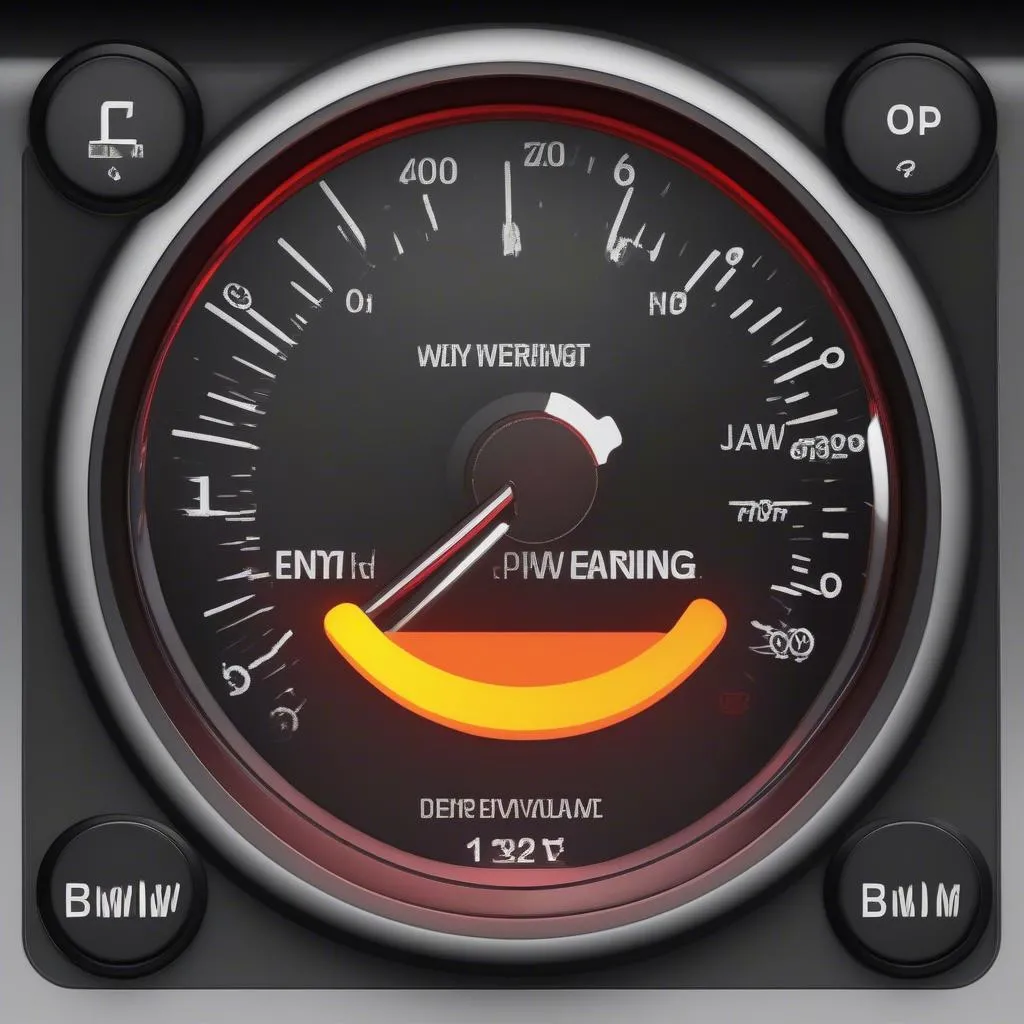BMW Engine Overheating: Causes, Symptoms, and Solutions
Have you ever been driving your BMW down the highway, feeling the wind in your hair, when suddenly the temperature gauge starts climbing? You check the dashboard, and there it is: the dreaded “engine overheating” warning light. Your heart sinks. You’re not sure what to do, but you know it’s not good.
Why is my BMW engine overheating?
Engine overheating is a serious problem that can lead to costly repairs if not addressed promptly. It’s a common issue that BMW owners experience, but there are many possible causes.
From a mechanic’s perspective, engine overheating is a sign that the cooling system is not functioning properly. The cooling system is responsible for regulating the temperature of the engine, and if it fails, the engine can overheat and cause significant damage.
From a technical standpoint, overheating occurs when the engine generates more heat than the cooling system can dissipate. This can happen for several reasons, including:
- Low Coolant Levels: Coolant is essential for transferring heat away from the engine. If the coolant level is low, the engine will overheat.
- Clogged Radiator: The radiator is responsible for dissipating heat into the air. If it becomes clogged with debris, it will not be able to cool the engine effectively.
- Faulty Thermostat: The thermostat controls the flow of coolant through the engine. If it malfunctions, it may prevent the coolant from circulating properly, leading to overheating.
- Faulty Water Pump: The water pump circulates the coolant through the engine. If it fails, the coolant will not be able to circulate properly, and the engine will overheat.
- Head Gasket Failure: A blown head gasket can allow coolant to mix with the engine oil, reducing the coolant level and causing the engine to overheat.
From an economic perspective, engine overheating can lead to significant repair costs. The cost of replacing parts like the radiator, thermostat, or water pump can be substantial, and in severe cases, engine damage can lead to a complete engine replacement, which can be very expensive.
Symptoms of a BMW Engine Overheating
Recognizing the symptoms of an overheating engine early can prevent costly repairs. Here are some common signs to watch out for:
- Temperature gauge climbing: The most obvious sign of overheating is the temperature gauge rising above the normal operating range.
- Warning light: Most BMW models will have a warning light that illuminates when the engine is overheating.
- Steam coming from the hood: If the engine is overheating severely, you may see steam coming from the hood. This is a sign of coolant boiling over.
- Overheating smell: The engine might have a burning or sweet smell, indicating a coolant leak.
- Engine performance issues: If the engine is overheating, it may start to run rough or lose power.
How to fix a BMW engine overheating
If you suspect your BMW engine is overheating, the best course of action is to pull over to a safe location and turn off the engine immediately. Do not try to continue driving, as this can cause further damage.
Once you’ve stopped the car, you can check the coolant level. If it’s low, you can add more coolant to the reservoir. However, if the coolant level is already full and the engine is still overheating, you should call a tow truck and take your car to a mechanic.
Here are some helpful tips to avoid an overheating situation:
- Regularly check your coolant level: Checking the coolant level every few months can prevent a low coolant situation.
- Inspect the radiator: Ensure the radiator is clean and free of debris.
- Change the thermostat: Replace the thermostat as recommended by the manufacturer.
- Flush the cooling system: Flush the cooling system regularly to prevent clogging and ensure proper coolant circulation.
If you are experiencing issues with your Bmw Engine Overheating, it is crucial to seek professional advice. A certified BMW mechanic can diagnose the problem and recommend the appropriate solution.
Frequently Asked Questions About BMW Engine Overheating
Q: How do I know if my BMW engine is overheating?
A: The temperature gauge on your dashboard will be the most reliable indicator. If it rises above the normal range or you see the “engine overheating” warning light, it’s a sign to pull over immediately.
Q: Can I drive my BMW with an overheating engine?
A: Absolutely not. Driving with an overheating engine can cause significant damage to the engine, including warping the cylinder head, damaging the head gasket, and even causing a catastrophic engine failure.
Q: How much does it cost to fix a BMW engine overheating?
A: The cost can vary depending on the underlying cause. A minor issue, like a low coolant level, might be a quick and inexpensive fix. However, replacing a faulty thermostat or water pump can be more expensive. In extreme cases, a blown head gasket could require a complete engine overhaul, resulting in a substantial repair bill.
Q: Can I add water to my BMW engine if it’s overheating?
A: Adding water to your BMW engine might be a temporary solution, but it is not recommended. Water will boil away quickly and doesn’t offer the same protection as coolant.
Q: Is there a way to prevent my BMW engine from overheating?
A: Regular maintenance is the best way to prevent overheating. Keep your coolant levels topped off, flush your cooling system regularly, and check the thermostat and water pump for any signs of wear and tear.
Other articles you might find helpful
- BMW Engine Overheating Light: https://cardiagxpert.com/bmw-engine-overheating-light/
- BMW N55 Issues: https://cardiagxpert.com/bmw-n55-issues/
- BMW Mechanic Houston, TX: https://cardiagxpert.com/bmw-mechanic-houston-tx/
For expert advice on BMW diagnostics and repairs, contact Car Diag Xpert. We offer a comprehensive range of services and have a team of certified mechanics available 24/7 to assist you.
Reach out to us via Whatsapp: +84767531508.
 bmw-overheating-gauge
bmw-overheating-gauge
 bmw-mechanic-inspection
bmw-mechanic-inspection
Don’t let engine overheating ruin your driving experience. Contact Car Diag Xpert today to get the professional help you need.
